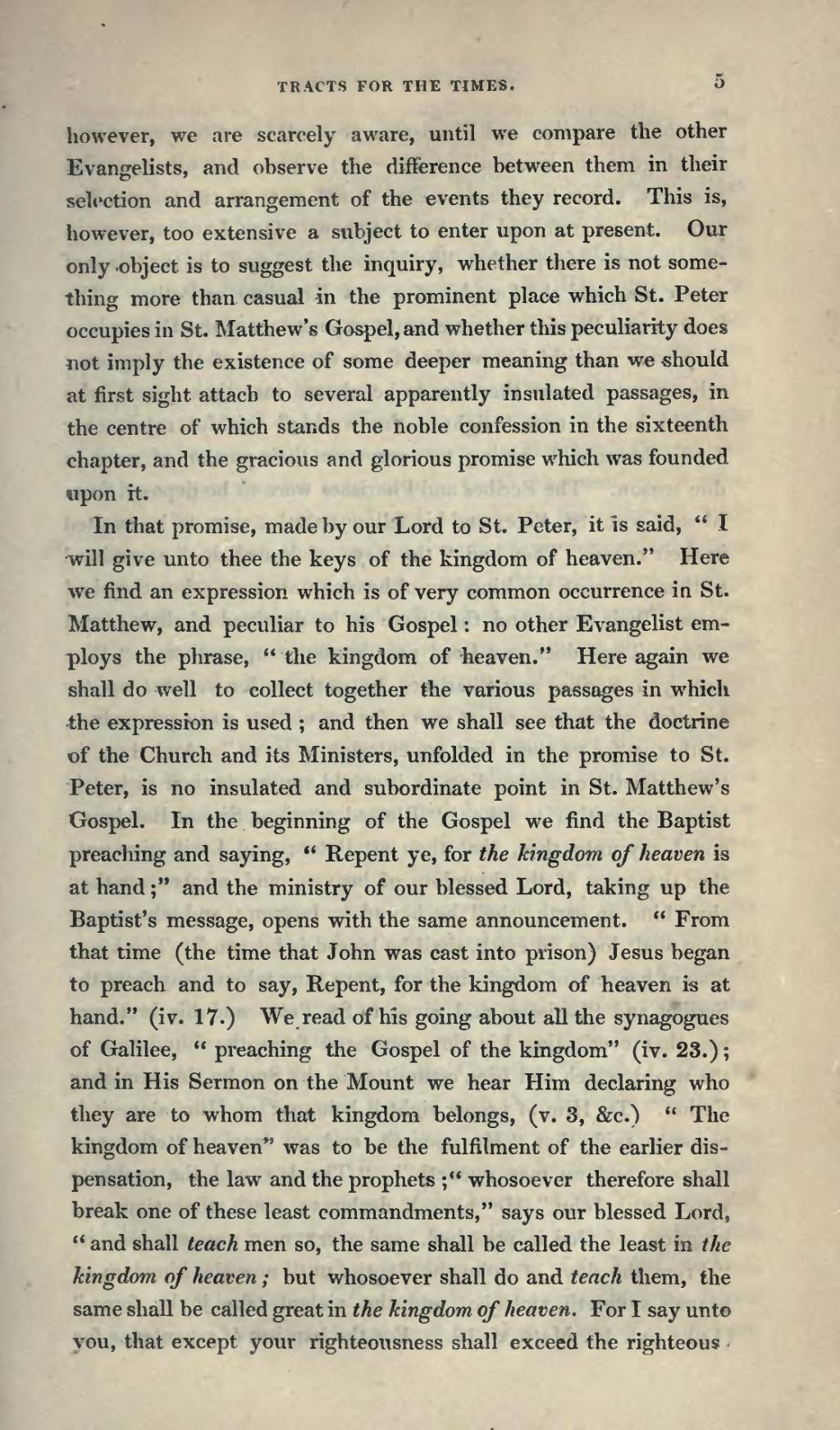however, we are scarcely aware, until we compare the other Evangelists, and observe the difference between them in their selection and arrangement of the events they record. This is, however, too extensive a subject to enter upon at present. Our only object is to suggest the inquiry, whether there is not something more than casual in the prominent place which St. Peter occupies in St. Matthew's Gospel, and whether this peculiarity does not imply the existence of some deeper meaning than we should at first sight attach to several apparently insulated passages, in the centre of which stands the noble confession in the sixteenth chapter, and the gracious and glorious promise which was founded upon it.
In that promise, made by our Lord to St. Peter, it is said, "I will give unto thee the keys of the kingdom of heaven." Here we find an expression which is of very common occurrence in St. Matthew, and peculiar to his Gospel: no other Evangelist employs the phrase, "the kingdom of heaven." Here again we shall do well to collect together the various passages in which the expression is used; and then we shall see that the doctrine of the Church and its Ministers, unfolded in the promise to St. Peter, is no insulated and subordinate point in St. Matthew's Gospel. In the beginning of the Gospel we find the Baptist preaching and saying, "Repent ye, for the kingdom of heaven is at hand;" and the ministry of our blessed Lord, taking up the Baptist's message, opens with the same announcement. "From that time (the time that John was cast into prison) Jesus began to preach and to say. Repent, for the kingdom of heaven is at hand." (iv. 17.) We read of his going about all the synagogues of Galilee, "preaching the Gospel of the kingdom" (iv. 23.); and in His Sermon on the Mount we hear Him declaring who they are to whom that kingdom belongs, (v. 3, &c.) "The kingdom of heaven" was to be the fulfilment of the earlier dispensation, the law and the prophets; "whosoever therefore shall break one of these least commandments," says our blessed Lord, "and shall teach men so, the same shall be called the least in the kingdom of heaven; but whosoever shall do and teach them, the same shall be called great in the kingdom of heaven. For I say unto you, that except your righteousness shall exceed the righteous-
